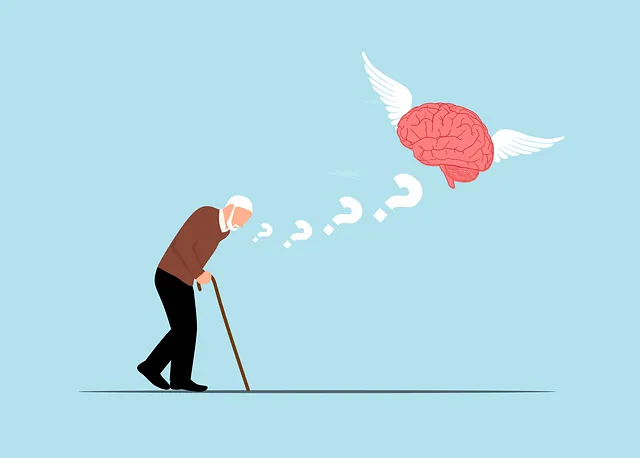Kaiser Permanente Lone Tree's mental wellness programs prioritize group facilitation, creating safe, non-judgmental spaces for individuals with shared experiences to connect and support each other. Facilitators employ active participation, empathy building, and open dialogue to encourage coping strategy sharing and mutual support. This comprehensive approach, leveraging mindfulness meditation, mood management, and Kaiser Permanente's mental health resources, aims to empower participants while fostering a supportive community for improved emotional well-being. Active engagement through clear ground rules, interactive activities, and peer discussions is crucial, as is navigating sensitive topics with strategies emphasizing emotional intelligence and validation. Success is measured through surveys and feedback, tailoring facilitation techniques to meet diverse needs and track improvements in mood, stress, and well-being.
Mental wellness group facilitation plays a pivotal role in enhancing patient care at organizations like Kaiser Permanente Lone Tree. This article explores effective techniques for facilitating supportive environments, encouraging active participant engagement, and navigating sensitive topics within mental health groups. We delve into best practices for success measurement, drawing from the expertise of Kaiser Permanente’s approach, offering valuable insights for healthcare professionals aiming to improve mental wellness outcomes in a group setting at the Kaiser Permanente Lone Tree location.
- Understanding Group Facilitation for Mental Wellness at Kaiser Permanente Lone Tree
- Creating a Safe and Supportive Environment: Key Techniques
- Engaging Participants: Strategies for Active Participation
- Navigating Difficult Conversations and Sensitive Topics
- Measuring Success and Evaluating the Impact of Group Sessions
Understanding Group Facilitation for Mental Wellness at Kaiser Permanente Lone Tree

At Kaiser Permanente Lone Tree, understanding group facilitation for mental wellness is a cornerstone of their comprehensive healthcare approach. This method recognizes the power of collective support in addressing and managing mental health concerns. Group sessions provide a safe and non-judgmental space where individuals with shared experiences can connect, fostering a sense of belonging and empathy. Through these gatherings, participants engage in open dialogue, share coping strategies, and offer mutual support, all while navigating challenges related to mental illness stigma reduction efforts.
Kaiser Permanente Lone Tree’s facilitators employ various techniques to promote emotional well-being. They create an environment that encourages active participation, ensuring every voice is heard. Empathy building strategies are at the forefront, as facilitators model understanding and compassion. This approach not only enhances communication but also strengthens the bond among group members. By combining these effective practices, Kaiser Permanente Lone Tree’s mental health programs aim to empower individuals while fostering a supportive community, ultimately contributing to improved emotional well-being for all participants.
Creating a Safe and Supportive Environment: Key Techniques

Creating a safe and supportive environment is paramount when facilitating mental wellness groups. It’s not just about providing a space for open dialogue; it involves cultivating an atmosphere where every participant feels seen, heard, and valued. Techniques like active listening, reflective statements, and encouraging non-judgmental participation foster trust and engagement. Facilitators should also ensure confidentiality, making participants feel comfortable sharing their experiences without fear of stigma or repercussions, aligning with resources offered by the Kaiser Permanente mental health number Lone Tree.
Mindfulness Meditation often serves as a cornerstone in cultivating this space. Incorporating brief meditation exercises can help individuals regulate emotions, manage stress, and enhance overall Mental Health Awareness. Similarly, teaching Mood Management strategies allows group members to develop coping mechanisms for dealing with difficult emotions. These practices not only promote individual well-being but also create a harmonious group dynamic where participants support each other through shared experiences.
Engaging Participants: Strategies for Active Participation

Engaging participants actively is key to facilitating effective mental wellness groups. As a facilitator, creating an inclusive and welcoming environment encourages open communication. Start by establishing clear ground rules that emphasize respect, confidentiality, and active listening. This sets the tone for a safe space where everyone feels comfortable sharing their experiences.
Utilize interactive activities like mental wellness journaling exercises guided by the Kaiser Permanente mental health number Lone Tree resources. These exercises not only promote positive thinking but also foster a sense of community among participants. Encourage peer-to-peer discussions, allowing individuals to learn from each other’s journeys and build connections. By actively involving group members, you enhance their sense of belonging and empower them to take ownership of their mental wellness journey.
Navigating Difficult Conversations and Sensitive Topics

Facilitating mental wellness groups requires a delicate balance, especially when addressing difficult conversations and sensitive topics. Group leaders must create a safe and non-judgmental environment where members feel empowered to share their experiences. This involves demonstrating emotional intelligence, actively listening, and validating each individual’s feelings. At Kaiser Permanente mental health number Lone Tree, professionals emphasize the importance of normalizing these discussions to reduce stigma and foster a supportive community.
When tackling sensitive matters, facilitators can employ strategies like setting clear boundaries, establishing ground rules, and using reflective practices to ensure everyone feels heard. The Community Outreach Program Implementation often involves training group members in communication skills, encouraging peer support, and providing resources for further assistance. This holistic approach not only navigates challenging conversations but also empowers individuals to advocate for their mental health through Mental Health Policy Analysis and Advocacy.
Measuring Success and Evaluating the Impact of Group Sessions

Measuring success and evaluating the impact of group sessions is a crucial aspect of facilitating effective mental wellness programs. Facilitators often employ various methods to assess the progress and satisfaction of group members, such as pre-and post-session surveys, feedback forms, or personal reflections. These tools help gauge improvements in emotional healing processes, confidence boosting, and burnout prevention among participants. By collecting qualitative and quantitative data, facilitators can identify which techniques are most beneficial and tailor their approach to better serve the diverse needs of the group.
For instance, a mental wellness group facilitated by Kaiser Permanente Lone Tree might use specific metrics to track improvements in mood, stress levels, and overall well-being. Regular check-ins and progress reports allow facilitators to recognize individual achievements and make necessary adjustments to the program. Evaluating the impact of these sessions not only ensures accountability but also provides valuable insights for improving future group facilitation techniques, fostering a supportive environment that promotes sustained mental health and emotional resilience.
Group facilitation techniques play a vital role in enhancing mental wellness, as demonstrated by Kaiser Permanente’s successful programs at their Lone Tree location. By creating safe spaces and employing strategies like active participation and sensitive topic navigation, facilitators can foster profound connections among participants. These methods, combined with effective evaluation measures, ensure that sessions not only engage folks but also offer tangible improvements to their mental health, reflecting the dedication of Kaiser Permanente to supporting community well-being.






